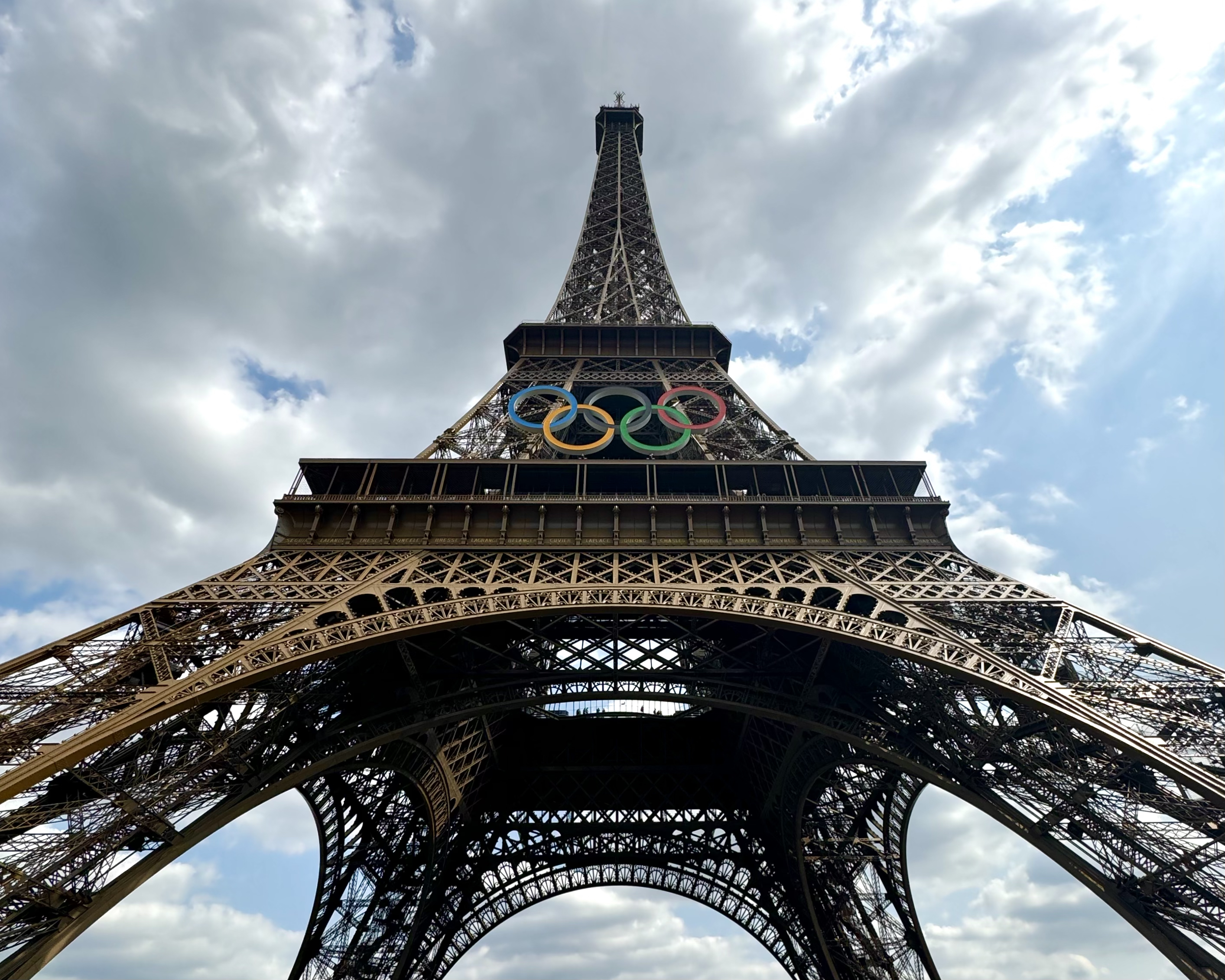Today's Headlines and Commentary
ISIS has overwhelmed Syrian government forces defending the town of Palmyra, home to roughly 50,000 people and one of the ancient world’s most magnificent archaeological sites. The victory means that ISIS now controls more than 50 percent of Syria --- more territory than any other group fighting, including the Assad government. While much of that is sparsely populated desert, it also includes major cites, key access points, critical supply lines, and most of the country's major oil depots.
Published by The Lawfare Institute
in Cooperation With

ISIS has overwhelmed Syrian government forces defending the town of Palmyra, home to roughly 50,000 people and one of the ancient world’s most magnificent archaeological sites. The victory means that ISIS now controls more than 50 percent of Syria --- more territory than any other group fighting, including the Assad government. While much of that is sparsely populated desert, it also includes major cites, key access points, critical supply lines, and most of the country's major oil depots. The Associated Press reports that hundreds of residents were seen fleeing as Assad’s forces retreated. Moreover, experts expressed fear over the fate of the UNESCO world heritage site on the edge of the city, which contains 2,000 year old Roman-era colonnades, temples, and other priceless artifacts. While no pictures or videos have been released from the town yet, many worry that ISIS will destroy the ancient city, pronouncing as pagan idolatry. The New York Times carries heart wrenching coverage of the battle and the state of the city post-”liberation,” where frantic texts and radio messages ended in cries of “we’re finished.” From Palmyra, ISIS is now in the position to strike government positions in Damascus and other cities in the north and east. Exploiting its advantage, the Islamic State seized the last Syrian-government controlled border crossing into Iraq. Government forces have now withdrawn; taking charge of the border crossing will allow ISIS to more easily link up its positions in east-central Syria and Iraq’s Anbar province. Moreover, the BBC shares that Islamic State militants are on the move east from Ramadi, pushing towards Habbaniya, where Iraqi security forces and Iran-backed Shiite militias are preparing for a proposed counterattack to retake the provincial capital. The Long War Journal supports this report, writing that ISIS militants are currently sustaining an effort to break the Iraqi defensive line outside of Habbaniyah, and may have even succeeded in doing so. If ISIS is successful in Habbaniya, they would then be able to link supplies directly to Fallujah, which the group has held for almost a year, despite continued government attempts to recapture the city. ISIS has also claimed responsibility for a suicide attack in a packed Shiite mosque in eastern Saudi Arabia, according to Reuters. The assault killed 21 people and wounded more than 90 others. If corroborated, the attack would be the first executed on on Saudi soil to be claimed by the Islamic State. And while the Iraqi army may have fled the field as ISIS seized Ramadi, some quarters of Iraq are blaming the United States for losing the battle. In the Daily Beast, Nancy A. Youssef reports that Shiite militias as suggesting that, under pressure from the United States, Iraqi Prime Minister Haider al Abadi held back the very groups that could have saved the city. Moreover, the split between Sunni and Shiite is threatening to further undermine the central government’s power, as Shiite members of parliament on Friday suggested that Abadi had not prepared Ramadi adequately. If you’re still wondering why this is all going so badly, the Wall Street Journal has an illustrative story: the Sunni tribes in Iraq are still divided over the battle against the Islamic State, with some preparing to fight Iran-backed Shiite militias instead of supporting them. Since the conflict, ISIS has proven adept at manipulating the mutual mistrust and fear the Sunni tribes and Shiite militias harbor towards one another. The Journal quotes one tribal elder as saying, “I have always said I would much prefer to be killed by a Sunni terrorist organization than a Shiite terrorist organization.” Elsewhere in Syria, the al Nusra Front seized control of a hospital in the northwest of country. The AFP has more. While the battle in Iraq and Syria wages, a new one in Washington is heating up: how should the U.S.-led coalition fight the Islamic State’s self-proclaimed allies in Libya and beyond? Lara Jakes has that and more in Foreign Policy. Finally, in Politico, Brookings fellow J.M. Berger writes that “Barack Obama still 'misunderestimates' ISIL.” Interlude: Read Jeff Goldberg’s latest sitdown with President Barack Obama on ISIS, Israel, and Iran. A few Cliff's Notes:
- On Iran: “Look, 20 years from now, I’m still going to be around, God willing. If Iran has a nuclear weapon, it’s my name on this.”
- On Israeli security: “if you acknowledge that there are people and nations that, if convenient, would do the Jewish people harm because of a warped ideology. If you acknowledge those things, then you should be able to align yourself with Israel where its security is at stake, you should be able to align yourself with Israel.”
- On ISIS: “No, I don’t think we’re losing...There’s no doubt there was a tactical setback, although Ramadi had been vulnerable for a very long time, primarily because these are not Iraqi security forces that we have trained or reinforced."
War report from Yemen: 19 people died yesterday when airstrikes by the Saudi-led coalition hit a residential neighborhood in Sanaa. Another five Ethiopian migrants were killed in northern Yemen when the area they were sleeping was hit by Saudi airstrikes. Airstrikes also continue to pummel the Shawal Valley in northwest Pakistan, as Pakistan’s air force launched assaults killing at least 15 suspected militants. Local officials believe that the military is preparing to launch a ground offensive in the valley, which has served as a key smuggling route where the Taliban have operated freely. Reuters has more. Al Shabaab militants stormed across the border into Kenya late Thursday night, attacking a village before they were pushed back by Kenyan security forces, reports Reuters. The Interior Ministry said no casualties had been reported. Earlier today, China condemned U.S. military surveillance flights over the South China Sea, saying it was “strongly dissatisfied” after a U.S. surveillance plane, a P8-A Poseidon, flew over the artificial islands China is building. Reuters reports that during the surveillance flight on Wednesday, the Chinese navy issued eight separate warnings to the U.S. aircraft. In response, Assistant Secretary of State Daniel Russel told reporters that the United States would “continue to fully exercise” the right to operate in international waters and airspace. This most recent incident is part of a rising trend wherein Beijing is attempting to enforce a military exclusion zone above the islands it is building. The Chinese navy recently issued similar warning to a Philippine military aircraft near the Spratly archipelago. After the incident, the U.S. Navy released video of the manmade islands and the Chinese construction crews expanding reefs and building an airbase. Catch the action here. Yesterday, the Office of the Inspector General of the Department of Justice released a new review of the FBI’s use of Section 215 orders from 2007 through 2009. Ellen Nakashima of the Washington Post covers the report’s major findings, including that it took the Justice Department seven years to implement legally required minimization procedures for intelligence tools authorized by the USA Patriot Act. Lawfare covered the release here. Congress continues to govern by cliff---and now they’re doing so with national security authorizations. Politico explains that provisions of the Patriot Act, including Section 215 which authorizes the collection of U.S. telephony metadata, are in jeopardy of lapsing as the House skips town and the Senate barrels toward the reauthorization deadline. Senate Leader Mitch McConnell has set two competing votes for Saturday: one for the USA Freedom Act and another for a two-month extension of the Patriot Act. Senate Intelligence Committee Chair Richard Burr (R-NC) told the New York Times that he expects both measures will fail on the Senate floor. Accordingly, he is crafting a separate piece of legislation that will extend the Patriot Act for anywhere between five days to one month. Indeed, Burr apparently has kept pen in hand as of late: the National Journal reports that Burr has another proposal to amend the Freedom Act by extending the period wherein NSA storage of data would transition to telecom companies from six months to two years. For its part, the Hill reports that the White House has launched a full court press in an attempt to push senators to support the USA Freedom Act. Reuters shares that the FBI has arrested two men in southern California who are suspected of attempting to travel abroad to join the Islamic State. Parting Shot: It seems Osama bin Laden fancied himself a bit of a policy wonk, writes the Washington Post. Clint Watts outlines a “Guide to Reading the New Bin Laden Documents” in War on the Rocks. Start here for a little light weekend reading.
ICYMI: Yesterday, on Lawfare
Tim Edgar explains how the posturing of Senators Rand Paul (R-KY) and Mitch McConnell (R-KY) could upend meaningful surveillance reform, preventing either of them from achieving their stated goals, while undermining critical U.S. government security tools. Earlier in the day, Cody tipped us off to the newly released DOJ Inspector General report reviewing the FBI’s use of Section 215 orders from 2007 through 2009. Phillip Wallach challenged Lawfare readers to evaluate the “Hard Financial Crisis Choices,” arguing “if the question is how emergencies change the scope for government action, how legitimacy is achieved by crisis responders, or what the rule of law means in times of crisis, then adding financial crises to national security crises expands the material available for analysis.” Paul brought us the news that Fadi Chehade, the CEO of ICANN, has announced his intention to step down as of March 2016. Ben and Lawfare contributor Jodie Liu released their latest Brookings paper on “The Privacy Paradox: The Privacy Benefits of Privacy Threats,” exploring how the technologies we so often fear will undermine our privacy have also enhanced them in ways we often fail to consider. Don’t know what the Logjam Vulnerability is or how the NSA may have used it to break VPNs? Bruce Schneier explains. Ben also posted video from FBI Director James Comey’s remarks at Georgetown Law’s Cybersecurity Law Institute. It’s worth a watch. Let’s just say he doesn’t exactly say what some outlets have suggested. Finally, Jack shared a free new MOOC from the University of Adelaide called Cyberwar, Surveillance, and Security, taught by Melissa de Zwart, Dale Stephens, and Rebecca LaForgia. Email the Roundup Team noteworthy law and security-related articles to include, and follow us on Twitter and Facebook for additional commentary on these issues. Sign up to receive Lawfare in your inbox. Visit our Events Calendar to learn about upcoming national security events, and check out relevant job openings on our Job Board.





